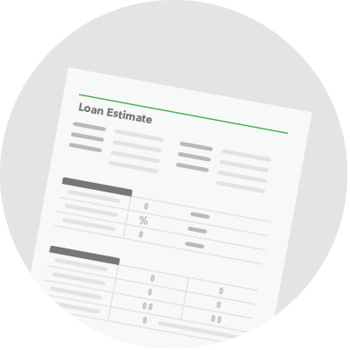 Unless you live under a rock, you have heard that the United States experienced a rapid and significant increase in home prices and construction in the first decade of the 21st century (the aughts) that turned out to be a bubble, which burst, leading to a recession. If you're a homeowner with a mortgage, you probably experienced some uneasiness as you watched the value of your home fall along with your investments and just about everything else of value you own. Fortunately, things have slowly improved over the last few years, but some are concerned that we're making the same mistakes all over again. Are we just inflating another housing bubble that will burst and have the same, or worse consequences?
Unless you live under a rock, you have heard that the United States experienced a rapid and significant increase in home prices and construction in the first decade of the 21st century (the aughts) that turned out to be a bubble, which burst, leading to a recession. If you're a homeowner with a mortgage, you probably experienced some uneasiness as you watched the value of your home fall along with your investments and just about everything else of value you own. Fortunately, things have slowly improved over the last few years, but some are concerned that we're making the same mistakes all over again. Are we just inflating another housing bubble that will burst and have the same, or worse consequences?
Some think so. One of their reasons for believing this is that home prices have been rising, and rising prices that are not justified by strong fundamentals can be symptomatic of a bubble. However, home prices as a whole are still lower than they were at the height of the boom (although prices in markets like San Francisco are actually higher). People want to see prices that reflect a sustainable demand that won't suddenly dry up and cause prices to crash. So, what are the factors affecting demand and price?
Low Interest Rates And Cash Buyers
Interest rates are currently low, which makes financing a home more affordable, and increases demand. Those considering buying a home may feel that they need to purchase now, before interest rates rise and make owning more expensive.
Another factor affecting demand is that there have been foreign investors and institutions buying properties as investments, and paying with cash. The way that low interest rates and cash buyers have affected demand causes some to believe that, when interest rates rise, cash buyers disappear, or some other problem pops up, prices will fall suddenly.
The opinion that we are living in a bubble is not one that is shared by most observers of the real estate market. Many things have changed, and the country has tried to learn from its mistakes.
Liar's Loans and Lending
One thing that is different is that, during the housing boom, the practices of many lenders were looser than they are now. Then, anyone with a warm body could get a mortgage, and probably some with a cold one could, too. Some lenders engaged in unfair practices that misled borrowers, and some borrowers misled lenders. Stated income loans (also called liar's loans) were more common then, and as their name implies, are where the lender does not verify the borrower's income by looking at their tax returns or W-2s. The borrower's income is whatever she says it is in a stated income loan.
Although intended to help self-employed people without the normal means of proving their income, they seem to be, predictably, a type of loan where overly-optimistic estimates of income and outright fraud were relatively common. Stated income loans do still exist, but they have been restricted by the Dodd-Frank Wall Street Reform and Consumer Protection Act.
 Efforts have also been made to reduce unfair and abusive lending practices and help borrowers understand their responsibilities before they buy. The Consumer Financial Protection Bureau has issued rules that require lenders to provide borrowers with easy-to-understand loan estimate and closing disclosure forms. The requirements are intended to make it as easy as possible for borrowers to understand the terms of their loan so they can make an informed decision.
Efforts have also been made to reduce unfair and abusive lending practices and help borrowers understand their responsibilities before they buy. The Consumer Financial Protection Bureau has issued rules that require lenders to provide borrowers with easy-to-understand loan estimate and closing disclosure forms. The requirements are intended to make it as easy as possible for borrowers to understand the terms of their loan so they can make an informed decision.
Down Payments
Some mortgage loans made during the bubble did not require any down payment and allowed borrowers to pay interest only for a period of time. Now, most loans require at least a 3% down payment and payment on the interest and principal. This should mean that borrowers have financed a minimum of 3% less, and also have more equity in their home.
Where We're Headed
The requirement that borrowers make a down payment, have good credit and sufficient income to afford their mortgage are all arguments against a bubble, but there are legitimate concerns. One of the biggest is the effect rising interest rates will have on the housing market. Interest rates will go up at some point, and there's concern that when they do, home loans could become so expensive that demand and prices will drop sharply. That doesn't seem likely considering that the Federal Reserve typically raises interest rates gradually, and new home construction is not high.
In any industry, there will be people with a variety of views, including bearish ones. People proclaiming that a catastrophe is imminent will always have an audience, and they will almost always be wrong. Presently, housing market doomsdayers are not in the majority, and our current housing market is considerably different than it was during the boom.
Bubbles often feature a frenzy of activity, with purchasers rushing to buy something so they don't miss out on the easy money, and suppliers hurrying to meet demand. In the stampede of home building, lending, and buying of the last housing bubble, those involved sometimes made bad decisions, and bent or broke rules so they could get in on the action. Most observers would not describe our current housing market as a frenzy or rush, and that's one of the reasons they do not think it resembles the last bubble.
Every market will have ups, downs, corrections, and unexpected events that cause unexpected consequences. The downturn in the housing market has meant that homeowners who purchased at the height of the bubble and have lost income are unable to sell their homes because they are now worth less than is owed on the mortgage. If you're in that situation, you may be able to modify your loan to make it more affordable, sell the property in a short sale, or find another solution. To do that, you'll want to work with an experienced law firm that is thoroughly experienced with loan modifications and foreclosure defense and give yourself the best chance of keeping your home.
Image courtesy of anankkml at FreeDigitalPhotos.net










